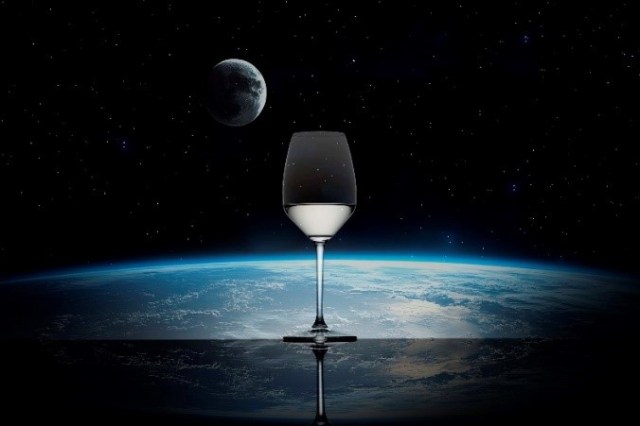Makers of Dassai to brew sake in space and sell 100 milliliters for 100 million yen

To boldly brew where no one has brewed before…
Sake is one of my favorite drinks, not just because it’s delicious and helps silence the dogs constantly barking in my head but because it has such a vast and rich culture of brewing. Using only the key ingredients of water, rice, and mold, it is possible to create an impressive array of varieties through even the most subtle environmental differences such as humidity and temperature.
Now, Asahi Shuzo, the makers of the popular Dassai brand of sake, are going to push these environmental factors to the absolute limit and brew a batch of sake in space. There have been cases of ingredients like yeast being sent into space and back, but this will be the first time the brewing process will be done outside of Earth’s atmosphere.

Asahi Shuzo’s plan is to send the ingredients to the International Space Station in the latter half of 2025. Once there, the fermentation process will be carried out by astronauts in the ISS’s newly opened Japanese Experiment Module, also known as “Kibo” (“Hope”). Conditions such as the alcohol content will be monitored from Earth and extra care will need to be paid in zero-gravity conditions for the 15-day brewing period.
▼ A special brewing device is under development for this mission.

When complete, the resulting 520 grams of “moromi” fermented rice mash will be frozen and sent back to terra firma. Upon its arrival the moromi will be pressed to extract the sake. This sake will be kept for analysis except for 100 milliliters (3.4 ounces) which will be bottled and sold… for 100 million yen (US$637,000).
The entire cost of what is to be called Dassai Moon Uchu Jozo (Dassai Moon Space Brewing) will be donated to the Japanese space program, so it could be seen more as a reward to anyone willing to make a very generous donation to space exploration. Dassai also hopes to one day brew sake on the Moon, using water recently discovered there.
This sake is said to be made using the famous Yamada Nishiki sake rice polished down to 23 percent, which would make it a junmai daiginjo with a relatively crisp and fruity flavor. How space will affect this is anyone’s guess at the moment, and all readers of the news online could do is wonder.
“They should have an auction for it. I think they could get up to five billion yen.”
“The price makes sense considering the production costs.”
“This an exciting attempt. I wonder how it will taste.”
“It’s good to see the sake industry being so active. I wonder how it will change the taste.”
“I bet you that Zozotown guy will buy it and give a review.”
“I wouldn’t even drink it. It’s probably better to keep as a part of history.”
“I’ll wait until Yamazaki does this with whiskey.”
“Would this be the most expensive sake ever?”
It would certainly seem that 100 million yen for 100 milliliters would make this the most expensive sake ever sold. It’s hard to say with certainty since transactions can sometimes be done in private, but the highest-priced bottle publicly sold at auction was Beyond the Beyond by Dassai which fetched US$8,125 at Sotheby’s for a standard 720-milliliter (24-ounce) bottle.
As for retail bottles, a limited run of Born: Chogin Vintage from Fukui Prefecture sold for a high of around three million yen ($191,000) in Dubai. There’s also Reikyo Crystal 0 from Niizawa Sake Brewery which somehow manages to mill its rice down to less than one percent and regularly sells for up to 1,300,000 yen ($83,000) per 500-milliliter (17-ounce) bottle.
While certainly pricey, all of these sakes combined still don’t hold a candle to Dassai Moon Uchu Jozo’s proposed price, especially on a per-milliliter basis. It’s quite amazing, especially considering the chances of this ending up tasting terrible are fairly realistic. I guess we’ll just have to wait until that Zozotown guy ultimately does buy it and drinks it in a YouTube video.
Source: Yomiuri Shimbun, Hachima Kiko, PR Times, Go Connect, Niizawa Sake Brewery
Images: PR Times
● Want to hear about SoraNews24’s latest articles as soon as they’re published? Follow us on Facebook and Twitter!
Credit:

0 comments: